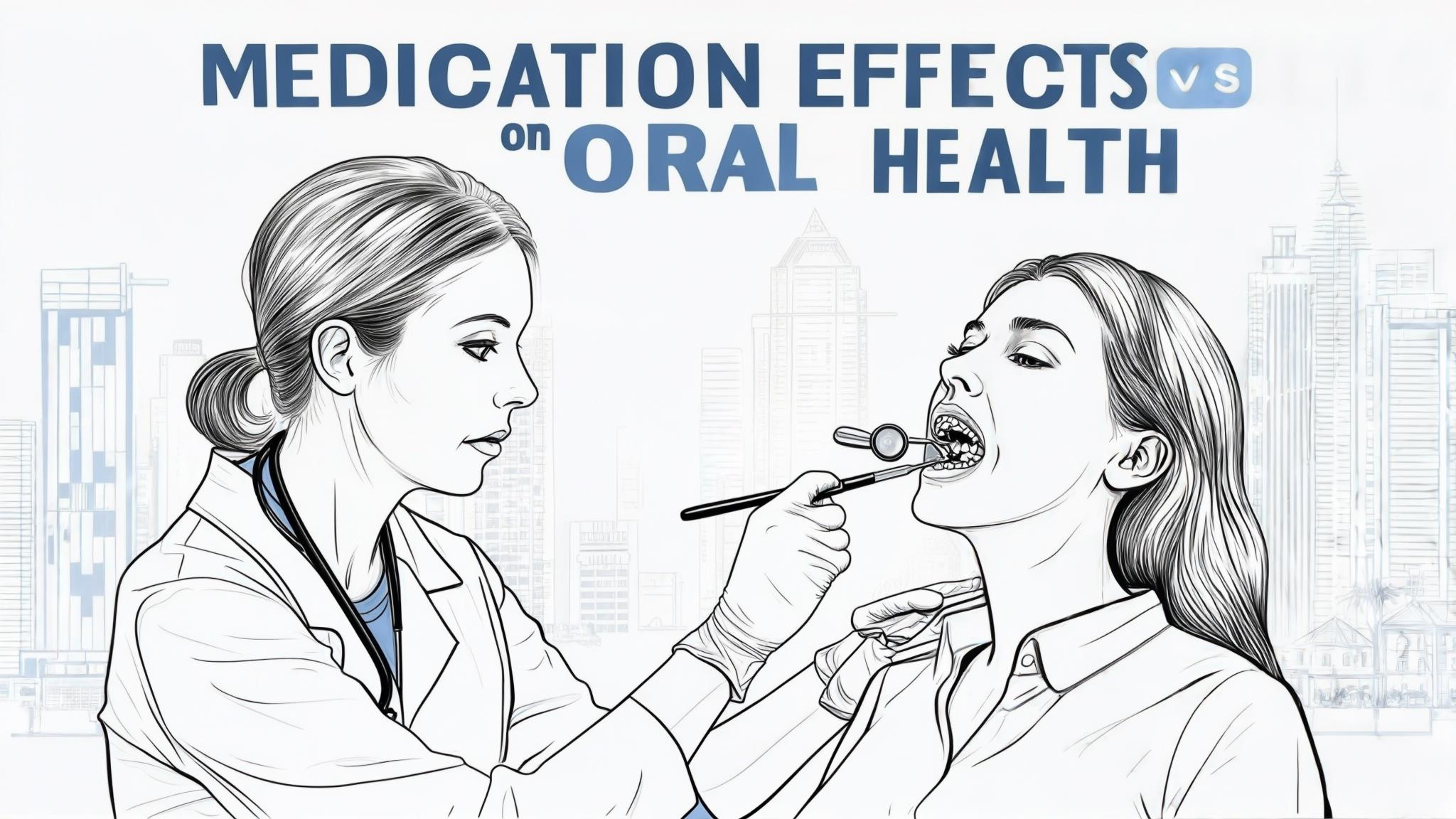Understanding Oral Health
Oral health is more than just a bright smile; it encompasses the health of your entire mouth, including your teeth, gums, and the soft tissues. Good oral health is crucial because it affects your ability to eat, speak, and even your overall well-being. Factors that influence oral health include diet, oral hygiene practices, medical conditions, and importantly, medications.
Factors Affecting Oral Health
- Diet: Consuming a balanced diet rich in vitamins and minerals supports healthy teeth and gums.
- Oral Hygiene Practices: Regular brushing and flossing help prevent plaque buildup and cavities.
- Medical Conditions: Diseases like diabetes can impact gum health.
- Medications: Certain medications can have side effects that affect oral health, which we'll explore in detail.
Common Medications Impacting Oral Health
Antibiotics
Antibiotics are essential for fighting infections, but they can disrupt the natural balance of bacteria in your mouth. This disruption can lead to oral thrush, a fungal infection causing white patches and discomfort.
Antidepressants
Antidepressants can cause dry mouth (xerostomia), reducing saliva production. Saliva is vital for neutralizing acids and washing away food particles, so a dry mouth increases the risk of cavities and gum disease.
Antihistamines
Antihistamines, used for allergies, also cause dry mouth. This side effect can make your mouth feel like a desert, leading to similar oral health issues as antidepressants.
Blood Pressure Medications
Medications such as diuretics and beta-blockers can reduce saliva production, affecting oral tissue health and increasing the risk of oral complications.
Chemotherapy Drugs
Chemotherapy targets rapidly dividing cells, affecting not only cancer cells but also healthy cells in the mouth. This can result in oral mucositis, painful sores, and an increased risk of infections.
Bisphosphonates
Used to treat osteoporosis, bisphosphonates have been linked to osteonecrosis of the jaw, a severe condition where the jawbone starts to die. Dental evaluations are crucial before starting these medications.
Steroids
Steroids can weaken the immune response and affect oral tissues, making you more susceptible to infections and delaying healing.
Mechanisms of Medication Impact on Oral Health
Salivary Gland Function
Saliva plays a crucial role in maintaining oral health by washing away food particles and neutralizing acids. Many medications reduce saliva production, leading to dry mouth and increased risk of dental issues.
Changes in Oral Microbiome
Medications can alter the bacterial balance in your mouth, potentially leading to overgrowth of harmful bacteria and oral diseases.
Mucosal Health
Some medications affect the health of oral tissues, reducing their ability to heal and increasing susceptibility to infections.
Importance of Regular Dental Check-Ups
Regular dental check-ups are essential for monitoring the effects of medications on your oral health. Dentists can provide strategies to manage medication-related issues, such as recommending saliva substitutes or special mouthwashes. Always disclose your medication use during dental visits to ensure comprehensive care.
Conclusion
Medications are vital for managing health conditions, but they can have unintended effects on your oral health. It's important to communicate openly with both your healthcare providers and dental professionals to maintain a healthy smile. Remember, a proactive approach to oral care can mitigate many medication-related issues.
References
For further reading, consider exploring scientific studies and articles on medication and oral health. These resources offer deeper insights into how medications can affect your oral well-being and strategies for management.

